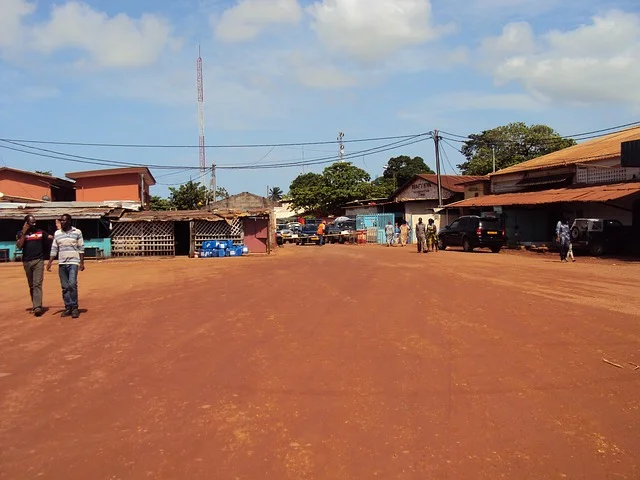Gabon, a nation on Central Africa’s Atlantic coast, features large sections of protected parkland. Loango National Park, with its wooded coastal landscape, is home to a diverse range of animals, including gorillas, hippos, and whales. Lopé National Park is primarily made up of rainforest. The mangroves and tidal beaches of Akanda National Park are well-known.
Thanks to its oil reserves, Gabon has long been one of the top five African countries in terms of GDP. But because of rampant corruption, oil revenues are unevenly distributed, and about half of Gabon’s people live in poverty, surviving on a couple of dollars a day. The situation is similar in Nigeria, Africa’s most populous nation and one of the world’s largest oil producers.
Tourists usually go to Africa because of safari parks and nature reserves, so there are hardly any of them in Gabon – in this small country, only 2.7% of the territory is allocated for national parks. But those foreigners who do come here should bear in mind that it is not worth photographing anything at all. Firstly, it is directly prohibited by law, and secondly, many residents react very aggressively to attempts to photograph them without permission.
Unlike most other African countries, Gabon has no water shortage, the climate is humid, and the jungle covers about 80% of the state’s territory. True, due to the inaction of the authorities, many of their inhabitants are threatened with extinction. According to the latest information, about 500 species of birds, 80 species of plants, and a dozen species of animals that live here are at risk of disappearing completely in the near future.
In the past, Gabon was a colony of France, and French was still the official language. True, it changed so much in African conditions that it began to differ greatly from the original French. In addition, many Gabonese do not speak it at all, preferring their dialects. Many of the tribal languages spoken here do not even have a written form.
The population of Gabon is about 1,800,000 people. However, it is a very multicultural country, and representatives of many different peoples live here. Many of them are very small in number, their representatives number only a few hundred people. And the first population on the Gabonese lands were the pygmies, the smallest people in the world, but now there are only a few thousand of them left.
Despite the fertile soil, Gabon does not produce enough food to feed its citizens. Partly because the most primitive methods of cultivating the land are still used here, and partly because only 2% of the territory is allocated for the agricultural sector. Like some other industries, the Gabonese subsoil is rich in various minerals, not only oil but these deposits are not being developed.
Despite its compact size, Gabon is in the top 10 countries with the lowest population density on Earth. But on average, Gabonese women give birth to 5 children, so the population is growing at a rapid pace.
Gabonians consider all animals that are found in their country edible in general, from lizards and snakes to monkeys and elephants. And since poaching is thriving here, even the populations of rare animals living in reserves are inflicted huge damage.
Gabon’s relative financial well-being rests precisely on the production and export of oil. However, according to experts, it will end in about 20-30 years. After that, the state may become one of the poorest in Africa if it fails to rebuild its economy in advance.
Primitive people have lived in Gabon since time immemorial, and it was here that some of the oldest tools of labor ever made by the ancestors of modern man were discovered. However, the cradle of human civilization still lies somewhat to the south, in South Africa. There, not far from the city of Johannesburg, is the archaeological complex “Cradle of Humanity”. Ancient people, Australopithecus, lived there about 2,300,000 years ago.
